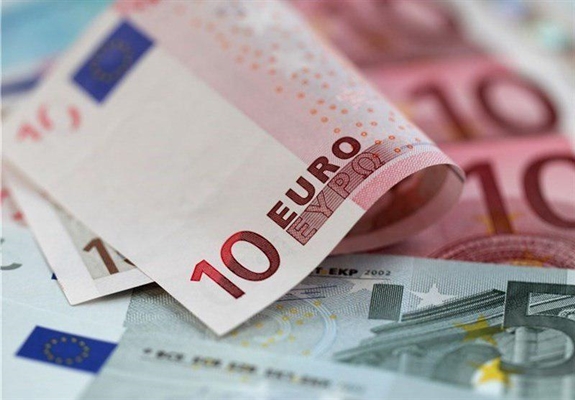‘EU Seeks to Gain More Concessions from Iran via INSTEX’

Tasnim News Agency has, in an article, suggested that the European Union does
not really intend to ease US sanctions on Iran; rather, it wants to gain more
concessions via the special financial mechanism it has introduced. The full text
of the analytical piece follows.
Following the United States’ withdrawal from the Iran nuclear deal known as the
Joint Comprehensive Plan of Action (JCPOA), the Europeans, who showed an
interest in preserving the agreement, vowed to adopt measures to secure Tehran’s
interests under the JCPOA. Therefore, in a statement on May 18, 2018, the
European Commission undertook to ease the effects of US sanctions on Iran-Europe
trade and take action to maintain trade and economic relations between the
European Union and Iran. To that end, the 4+1 group spoke of the formulation of
a new mechanism called the Special Purpose Vehicle (SPV). This special financial
channel was mainly aimed at easing Iran’s access to revenues from oil exports
and facilitating the imports of goods subject to Washington’s unilateral
sanctions. After a few months of foot-dragging, European countries officially
registered the SPV on January 31, 2019.
A statement issued by the foreign ministers of Britain, France and Germany after
the registration of the SPV shows the Instrument in Support of Trade Exchanges
(INSTEX) has distanced itself from its original objectives, and is not only not
an instrument to circumvent sanctions, but seeks to make US sanctions more
effective. The following points will shed more light on the issue.
INSTEX in Line with US Sanctions!
Although part of the European statement stipulates that INSTEX is in keeping
with EU and UN sanctions, and not in line with the United States’ unilateral
bans, limiting the sphere of this mechanism’s activity to medicines, medical
supplies, agricultural goods and foodstuffs shows INSTEX is practically in
conformity with US sanctions. In other words, the special financial mechanism,
which was originally supposed to circumvent US sanctions, is now working in
compliance with US sanctions and will have no benefits for Iranians. We can
accept that Europe is honestly seeking to preserve the JCPOA only if the EU gets
engaged in trade with that part of Iran’s economy which is under sanctions.
Although part of the European statement stipulates that INSTEX is in keeping
with EU and UN sanctions, and not in line with the United States’ unilateral
bans, limiting the sphere of this mechanism’s activity to medicines, medical
supplies, agricultural goods and foodstuffs shows INSTEX is practically in
conformity with US sanctions.
Call for Iran to Work with FATF to Intensify US Sanctions
Part of the above-said statement stresses that this mechanism is implemented
under the highest international standards with regards to fighting money
laundering and combating sponsoring terrorism. In the first glance, it may seem
that Europe’s expecting Iran to implement all the terms and conditions of the
Financial Action Task Force (FATF) as mentioned in the statement is in line with
the implementation of these very standards; however, such an idea is not true at
all because:
A) Under the statement issued by the three European countries, the INSTEX
mechanism focuses on humanitarian supplies (medicines, medical supplies,
agricultural goods and foodstuffs) and does not include any dual-purpose data-x-items
(nuclear, non-nuclear and military, non-military). So, there is no need to
precisely identify the final beneficiary.
B) the observance of money laundering standards counts only when there is the
likelihood that the source of money was a criminal act like smuggling. This is
while the source of money in the above-mentioned mechanism is the income from
Iran’s oil sales, which is undoubtedly not a criminal source.
C) Given that INSTEX only has the role of a barter mechanism to settle Iran’s
trade transactions and Iran gains no money in the process, the accusation of
sponsoring terrorism will be rejected altogether.
Therefore, it becomes clear that Europe’s expectation that Iran fully implement
all the terms and conditions of the FATF and join the Palermo Convention and the
Countering the Financing of Terrorism (CFT) act has no technical basis and is
only a politically-motivated demand.
More Concessions via INSTEX
But why is Europe insisting so much that Iran fully implement the FATF?
The implementation of the FATF will make Iranian individuals and companies’
financial transactions both at home and abroad transparent for foreigners,
making it possible for the US to precisely identify individuals and institutions
linked to the sectors that are under sanctions. As a result, the sanctions will
become more precise and it will become impossible to avoid the sanctions and the
Iranian financial system will become more vulnerable to US sanctions than ever.
Moreover, with financial transactions inside the country becoming transparent,
the part of the nation’s economy which is not under sanctions will refuse to
cooperate with the part which is under sanctions, practically leading to
domestically-induced sanctions. Therefore, Iran’s cooperation with regards to
the FATF will make US sanctions against Iran more effective and redouble the
pressure of the bans. Only this way can Europe and the United States ratchet up
economic pressure on Iran and gain more concessions from Tehran. According to
remarks by European authorities in recent months, the concessions that the
Americans are seeking include putting restrictions on Iran’s missile and
regional activities. Accordingly, it becomes evident that not only does Europe
not have any intention of solving the problems Iran is facing with regards to
sanctions, but tries to intensify Washington’s unilateral sanctions against Iran
and gain more concessions from the Islamic Republic by expecting Iran to
cooperate with regards to the FATF.
















